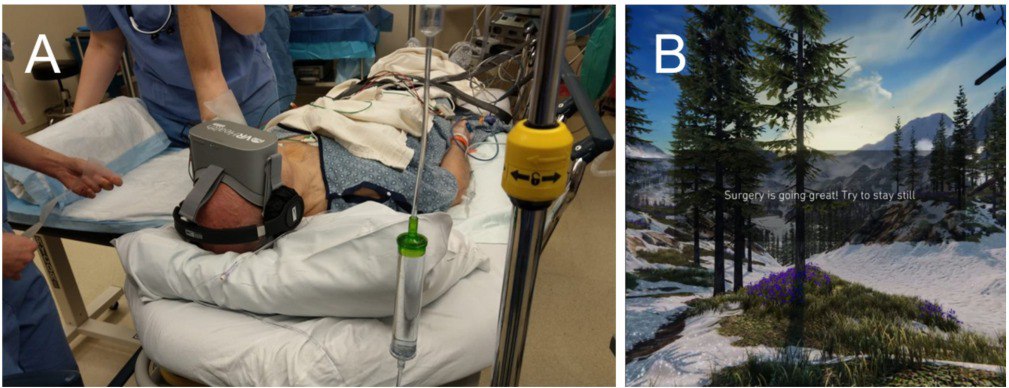The article "Virtual reality immersion compared to monitored anesthesia care for hand surgery: A randomized controlled trial," published in 2021, describes a randomized clinical trial comparing the efficacy of virtual reality immersion to monitored anesthesia care in patients undergoing hand surgery.

Comparison of patients in the VR and MAC groups
The study included 40 patients who needed hand surgery and were randomly assigned to one of two treatment groups: the virtual reality (VR) immersion group and the monitored anesthesia care (MAC) group.
Patients in the VR group wore virtual reality goggles and headphones to immerse themselves in a virtual environment while receiving local anesthesia prior to and during minor hand surgery. Patients in the MAC group received local anesthesia and performed the minor hand surgery in the traditional manner, only this group was closely monitored by an anesthesiologist during surgery.
The results of the study showed that VR immersion was equally effective as monitored anesthetic care in terms of patient satisfaction, duration of surgery, postoperative pain, and need for analgesics.
In addition, patients in the VR group reported greater satisfaction with the care they received, and the use of virtual reality was associated with a significant decrease in preoperative anxiety.

Conclusions
The study authors conclude that VR immersion may be a safe and effective alternative to monitored anesthetic care for hand surgery and may improve patient satisfaction and reduce preoperative anxiety.
This study is an example of the potential of virtual reality technology in improving the patient experience in medical settings. It can provide a more engaging and less stressful experience for patients, which can improve patient satisfaction and reduce anxiety.
In addition, this study suggests that virtual reality may be an effective alternative to conscious sedation in some surgical procedures. Conscious sedation can have risks and side effects, and virtual reality may provide a safer, side-effect-free alternative.
In summary, this study shows that VR immersion can be a safe and effective alternative to monitored anesthetic care in hand surgery. In addition, it can improve patient satisfaction and reduce preoperative anxiety, which can improve the patient experience in medical settings. This study highlights the potential of VR to improve medical care and quality of life for patients.


